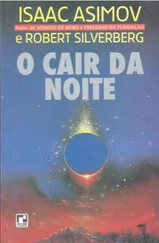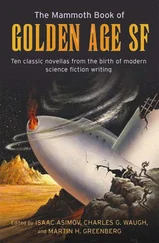Edward Hoch - Isaac Asimov's Worlds of Fantasy. Book 6 - Mythical Beasties
Здесь есть возможность читать онлайн «Edward Hoch - Isaac Asimov's Worlds of Fantasy. Book 6 - Mythical Beasties» весь текст электронной книги совершенно бесплатно (целиком полную версию без сокращений). В некоторых случаях можно слушать аудио, скачать через торрент в формате fb2 и присутствует краткое содержание. Жанр: Фантастика и фэнтези, на английском языке. Описание произведения, (предисловие) а так же отзывы посетителей доступны на портале библиотеки ЛибКат.
- Название:Isaac Asimov's Worlds of Fantasy. Book 6: Mythical Beasties
- Автор:
- Жанр:
- Год:неизвестен
- ISBN:нет данных
- Рейтинг книги:5 / 5. Голосов: 1
-
Избранное:Добавить в избранное
- Отзывы:
-
Ваша оценка:
- 100
- 1
- 2
- 3
- 4
- 5
Isaac Asimov's Worlds of Fantasy. Book 6: Mythical Beasties: краткое содержание, описание и аннотация
Предлагаем к чтению аннотацию, описание, краткое содержание или предисловие (зависит от того, что написал сам автор книги «Isaac Asimov's Worlds of Fantasy. Book 6: Mythical Beasties»). Если вы не нашли необходимую информацию о книге — напишите в комментариях, мы постараемся отыскать её.
Isaac Asimov's Worlds of Fantasy. Book 6: Mythical Beasties — читать онлайн бесплатно полную книгу (весь текст) целиком
Ниже представлен текст книги, разбитый по страницам. Система сохранения места последней прочитанной страницы, позволяет с удобством читать онлайн бесплатно книгу «Isaac Asimov's Worlds of Fantasy. Book 6: Mythical Beasties», без необходимости каждый раз заново искать на чём Вы остановились. Поставьте закладку, и сможете в любой момент перейти на страницу, на которой закончили чтение.
Интервал:
Закладка:
In the Greek translation of the Bible, re-em was translated as monokeros ("one-horn"), the reference being to the Assyrian representations in profile. This became unicomis (also "one-horn") in Latin, and the legend was fixed.
Somehow, the unicorn tale became preltied up. Instead of a one-horned bull remarkable for its strength, it became a one-horned horse, or horselike antelope, remarkable for its beauty and swiftness. It began to symbolize purity and virginity; it could be caught only by a virgin woman.
Its horn is now pictured as a tight spiral, extending forward and slowly tapering. This is actually the "horn" (really, the tooth) of the narwhal, a species of whale. The narwhal tooth was brought back by sailors and sold as a unicorn horn for large sums, since such a horn was considered a powerful aphrodisiac.
The following story deals with the unicorn at its prettiest.
The Silken Swift
by Theodore Sturgeon
There's a village by the Bogs. and in the village is a Great House. In the Great House lived a squire who had land and treasures and, for a daughter, Rita.
In the village lived Del, whose voice was a thunder in the inn when he drank there; whose corded, cabled body was golden-skinned, and whose hair flung challenges back to the sun.
Deep in the Bogs, which were brackish, there was a pool of purest water, shaded by willows and wide-wondering aspen, cupped by banks of a moss most marvelously blue. Here grew mandrake, and there were strange pipings in midsummer.
No one ever heard them but a quiet girl whose beauty was so very contained that none of it showed. Her name was Barbara There was a green evening, breathless with growth, when Del took his usua! way down the lane beside the manor and saw a white shadow adrift inside the tall iron pickets. He stopped, and the shadow approached, and became Rita. "Slip around to the gate," she said, "and I'll open it for you.*'
She wore a gown like a cloud and a silver circlet round her head. Night was caught in her hair, moonlight in her face, and in her great eyes, secrets swam.
Del said, "I have no business with the squire."
"He's gone," she said. "I've sent the servants away.
Come to the gate."
"I need no gate." He leaped and caught the top bar of the fence, and in a continuous fluid motion went high and across and down beside her. She looked at his arms, one, the other; then up at his hair- She pressed her small hands tight together and made a little laugh, and then she was gone through the tailored trees, lightly, swiftly, not looking back. He followed, one step for three of hers, keeping pace with a new pounding in the sides of his neck. They crossed a flower bed and a wide marble terrace. There was an open door, and when he passed through it he stopped, for she was nowhere in sight.
Then the door clicked shut behind him and he whirled. She was there, her back to the panel, laughing up at him in the dimness. He thought she would come to him then, but instead she twisted by, close, her eyes on his. She smelt of violets and sandalwood. He followed her into the great hal!. quite dark but full of the subdued lights of polished wood, cloisonne, tooled leather and gold-threaded tapestry. She flung open another door, and they were in a small room with a carpet made of rosy silences, and a candle-lit table. Two places were set, each with five different crystal glasses and old silver as prodigally used as the iron pickets outside. Six teakwood steps rose to a great oval window. "The moon," she said, "will rise for us there."
She motioned him to a chair and crossed to a sideboard, where there was a rack of decanters-ruby wine and white; one with a strange brown bead; pink, and amber. She took down the first and poured. Then she lifted the silver domes from the salvers on the table, and a magic of fragrance filled the air. There were smoking sweets and savories, rare seafood and slivers of fowl, and morsels of strange meat wrapped in flower petals, spitted with foreign fruits and tiny soft seashells. All about were spices, each like a separate voice in the distant murmur of a crowd: saffron and sesame, cumin and marjoram and mace.
And all the while Del watched her in wonder, seeing how me candles left me moonlight in her face, and how completely she trusted her hands, which did such deftness without supervision-so composed she was, for all the silent secret laughter that tugged at her lips, for all the bright dark mysteries that swirled and swam within her.
They ate, and the oval window yellowed and darkened while the candlelight grew bright. She poured another wine and another, and with the courses of the meal they were as May to the crocus and as frost to the apple.
Del knew it was alchemy and he yielded to it without questions. That which was purposely oversweet would be piquantly cut; this induced thirst would, with exquisite timing, be quenched. He knew she was watching him; he knew she was aware of the heat in his cheeks and the tingle at his fingertips. His wonder grew, but he was not afraid.
In all this time she spoke hardly a word; but at last the feast was over and they rose. She touched a silken rope on the wall, and paneling slid aside. The table rolled Silently into some ingenious recess and the panel returned. She waved him to an L-shaped couch in one comer, and as he sat close to her, she turned and took down the lute which hung on the wait behind her. He had his moment of confusion; his arms were ready for her, but not for the instrument as well. Her eyes sparkled, but her composure was unshaken.
Now she spoke, while her fingers strolled and danced on the lute, and her words marched and wandered in and about the music- She had a thousand voices, so that he wondered which of them was truly hers. Sometimes she sang; sometimes it was a wordless crooning. She seemed at times remote from him, puzzled at the turn the music was taking, and at other times she seemed to hear the pulsing roar in his eardrums, and she played laughing syncopations to it- She sang words which he almost understood:
"Bee to blossom, honey dew.
Claw to mouse, and rain to tree,
Moon to midnight. I to you;
Sun to starlight, you to me…"
and she sang something wordless:
"Ake ya rundefle, rundefle fye,
Orel ya rundefle kown,
En yea. en yea. ya bunderbee bye
En sor, en see, en sown."
which he also almost understood.
In still another voice she told him the story of a great hairy spider and a little pink girl who found it between the leaves of a half-open book; and at first he was all fright and pity for the girl, but then she went on to tell of what the spider suffered, with his home disrupted by this yawping giant, and so vividly did she tell of it that at the end he was laughing at himself and all but crying for the poor spider.
So the hours slipped by, and suddenly, between songs, she was in his arms; and in the instant she had twisted up and away from him. leaving him gasping. She said, in still a new voice, sober and low. "No. Del. We must wait for the moon."
His thighs ached and he realized that he had half-risen. arms out, hands clutching and feeling the extraordinary fabric of her gown though it was gone from them; and he sank back to the couch with an odd, faint sound that was wrong for the room. He flexed his fingers and, reluctantly, the sensation of white gossamer left them. At last he looked across at her and she laughed and leapt high lightly, and it was as if she stopped in midair to stretch for a moment before she alighted beside him, bent and kissed his mouth, and leapt away.
The roaring in his ears was greater, and at this it seemed to acquire a tangible weight. His head bowed; he tucked his knuckles into the upper curve of his eye sockets and rested his elbows on his knees. He could hear the sweet susurrus of Rita's gown as she moved about the room; he could sense the violets and sandalwood. She was dancing, immersed in the joy of movement and of his nearness. She made her own music, humming, sometimes whispering to the melodies in her mind.
Читать дальшеИнтервал:
Закладка:
Похожие книги на «Isaac Asimov's Worlds of Fantasy. Book 6: Mythical Beasties»
Представляем Вашему вниманию похожие книги на «Isaac Asimov's Worlds of Fantasy. Book 6: Mythical Beasties» списком для выбора. Мы отобрали схожую по названию и смыслу литературу в надежде предоставить читателям больше вариантов отыскать новые, интересные, ещё непрочитанные произведения.
Обсуждение, отзывы о книге «Isaac Asimov's Worlds of Fantasy. Book 6: Mythical Beasties» и просто собственные мнения читателей. Оставьте ваши комментарии, напишите, что Вы думаете о произведении, его смысле или главных героях. Укажите что конкретно понравилось, а что нет, и почему Вы так считаете.








